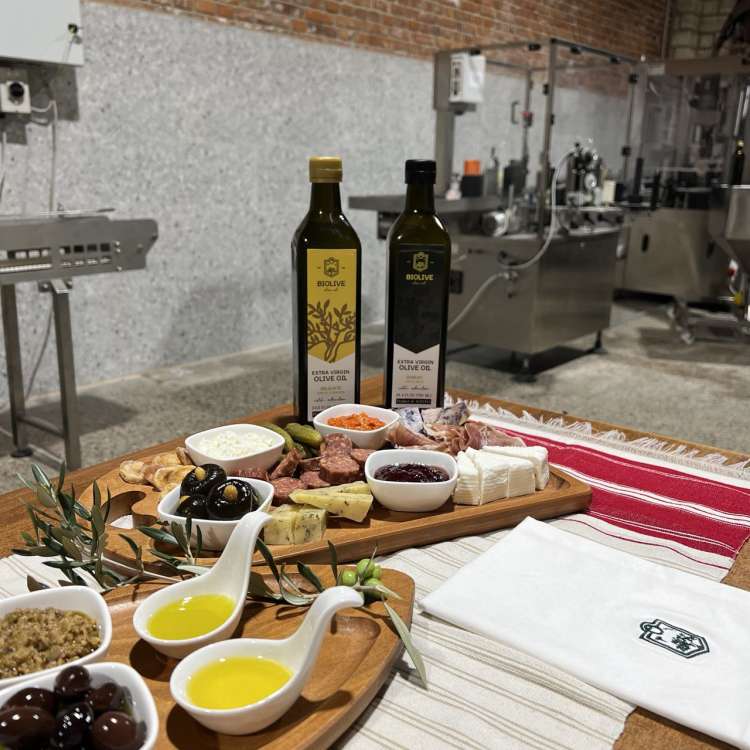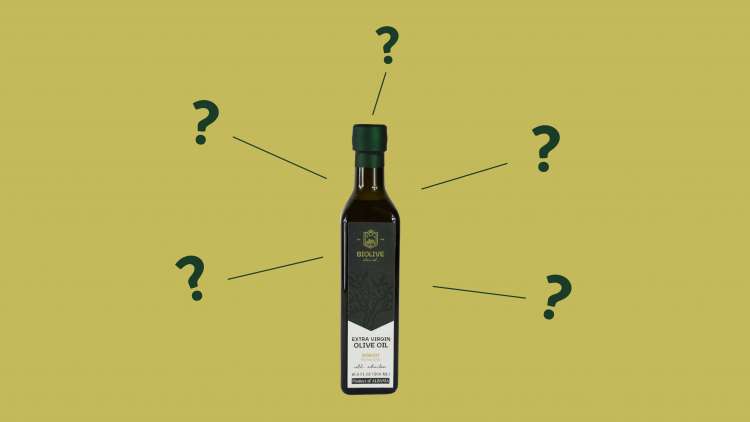Olive oil is a delicate ingredient that requires proper storage to maintain its flavor and health benefits. At BIOLIVE, the preservation of our olive oil's flavor, quality, and freshness is of the utmost importance to us. To protect our precious oil we use stainless steel tanks, which are hermetically sealed with nitrogen and stored at a temperature of 16-18°C (60.8 - 64.4°F). Finally, we choose to bottle our extra virgin olive oil in dark glass to shield it from light and maintain its impeccable quality. Certainly, when it comes to storing olive oil at home, our options may be more limited. However, armed with an understanding of the primary enemies of this liquid gold, you can identify that perfect spot for storage and you can ensure that your precious olive oil remains fresh and flavorful for longer
Who are the enemies of olive oil?
- Temperature: Olive oil's enemies include temperature extremes, heat, and cold. The optimal storage temperature for olive oil is between 14-24 degrees Celsius. To preserve the quality of your olive oil, it is recommended to keep it away from any heat sources such as ovens and stoves, as well as cold sources like the refrigerator.
- Light: Exposure to sunlight or direct light can damage the molecular structure of olive oil. To prevent this, it is best to store olive oil in dark glass or stainless steel containers, which protect it from exposure to light.
- Oxygen: When olive oil comes into contact with air, it starts to oxidize, causing its acidity to increase, and its taste and aroma to weaken. To minimize or eliminate oxygen exposure, it is recommended to use bottles as small as possible, avoid dealing with open bottles, and keep oil in a closed container.
- Time: Unlike wine, older olive oil is not necessarily better. It is recommended to consume olive oil within one year of its production date to enjoy its freshness and quality.
- Plastic: Olive oil should be kept away from plastic containers as much as possible. This is because oil can absorb various toxic substances from plastic. Iron and copper containers should also be avoided as chemical reactions can occur between the olive oil and these elements, leading to the production of toxins.
In conclusion, if you want to preserve your olive oil in optimal conditions, a wine cellar is the perfect storage solution. If you don't have a wine cellar, you can store your olive oil on a shelf or sideboard away from the stove and kitchen. By following these storage tips, you can ensure that your olive oil stays fresh and maintains its quality for as long as possible.
Comparing olive oil containers:
Bag-in-box containers deflate as oil is poured out, limiting oxygen exposure, but they're usually plastic and not refillable. Tin cans are opaque and durable, with a tin lining to prevent chemical alteration, but not always aesthetically pleasing. Glass bottles are aesthetically pleasing but susceptible to light penetration, making them suitable for smaller quantities. Some producers use opaque glass bottles. Ceramic bottles offer high protection against light but are delicate. Most EVOO is sold in PET containers, which are resistant to transportation but transparent and plastic at the end of the day.
How long can Extra Virgin Olive Oil last before its quality starts to deteriorate?
While regulations vary by country, the United States and European Union set the shelf life for EVOO at 18 months. However, the actual degradation point of EVOO quality depends on a variety of factors, including production methods and subsequent exposure to light, temperature, and oxygen.
Under optimal storage conditions, such as at home, EVOO can maintain its extra virgin qualities for up to two years. Consumers can detect when EVOO is no longer extra virgin as they will detect one of the main defects, such as rancidity, fustiness, winey-vinegariness, or mustiness.
For those who use EVOO daily, it is advisable to estimate the required amount for one year and purchase directly from the producer immediately after harvest when the olives are processed and the new EVOO is produced. This ensures the highest quality and freshness.


